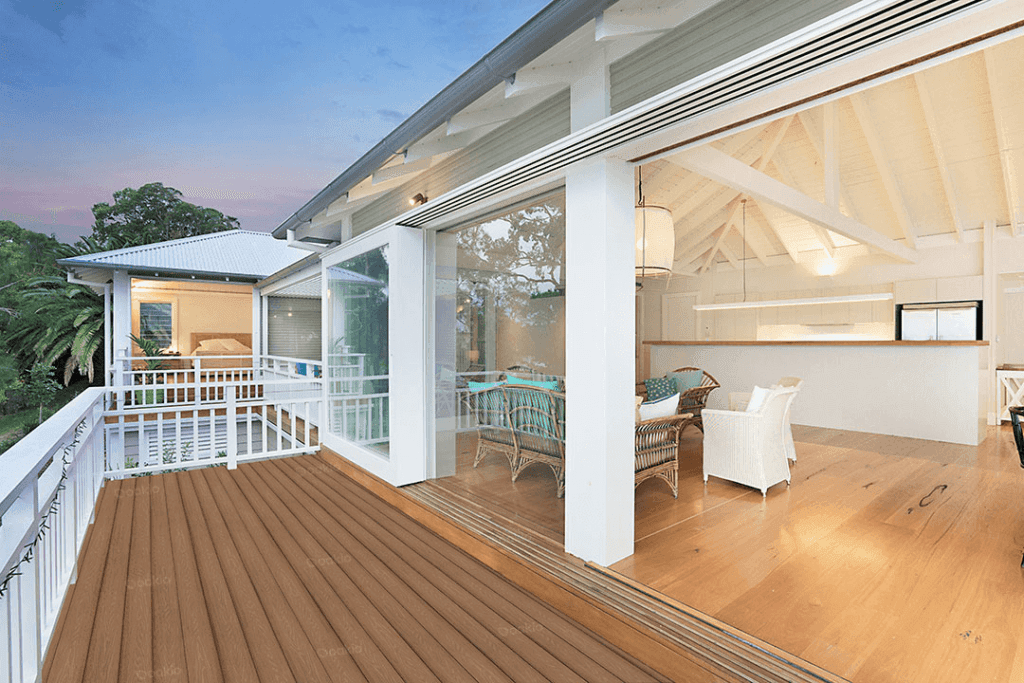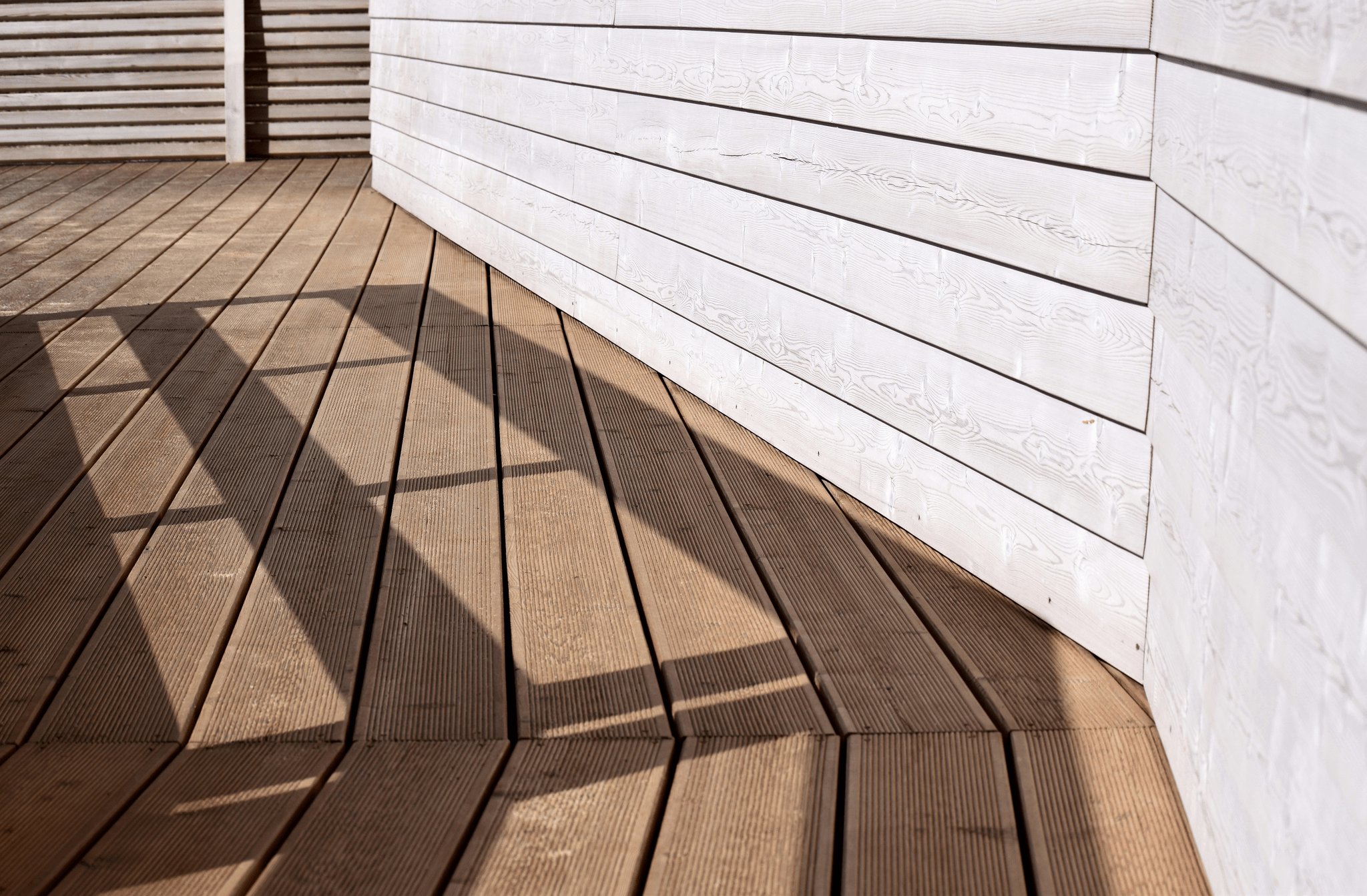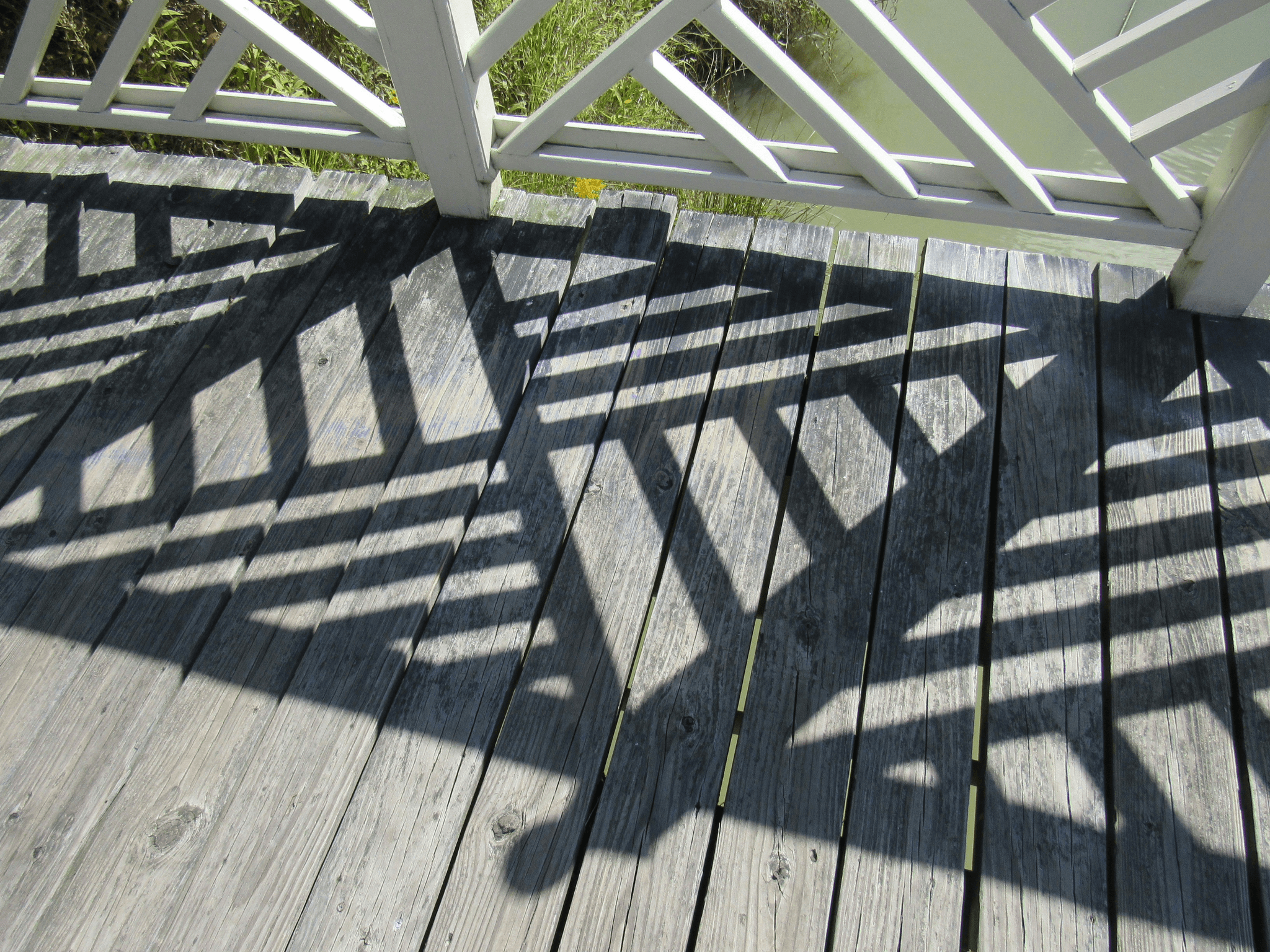Introduction
Composite decking has become a popular choice for homeowners looking to enhance their outdoor spaces. However, many wonder, does composite decking fade? Understanding the factors that influence the color retention of these deck boards is crucial for making informed decisions about your investment. This introduction will explore the science behind composite materials and how they compare to traditional options like natural wood and PVC decking.
Understanding Composite Decking Fade
The fading of composite decking can be a concern for many, leading to questions about the longevity of these materials. Unlike natural wood, which can weather and change color over time, good composite decking is engineered to resist fading due to its unique composition. However, it’s essential to recognize that while composite boards are more resistant than wood, they are not entirely immune to the effects of sun exposure.
Factors Influencing Deck Color Retention
Several factors play a role in determining how well deck composite decking retains its color over time. UV radiation from sunlight is one of the primary culprits that can lead to discoloration in both PVC and composite wood products. Additionally, environmental elements such as rain, snow, and temperature fluctuations can further impact the appearance of your deck boards.
The Science Behind Composite Materials
To understand why some types of composite decking fade more than others, it's essential to delve into their composition. Composite materials typically consist of a blend of recycled wood fibers and plastic polymers designed for durability and aesthetic appeal. This combination not only enhances resistance to fading but also contributes to overall performance against wear and tear compared to traditional options like natural wood or pure PVC decking.
The Basics of Composite Decking

Composite decking has become a popular choice for homeowners looking to enhance their outdoor spaces without the constant upkeep that traditional wood requires. At its core, composite decking is made from a blend of materials, typically including recycled wood fibers and plastic, which creates a durable and aesthetically pleasing alternative to natural wood. Understanding what composite decking is will help you appreciate its benefits and how it compares to other options like PVC decking.
What is Composite Decking?
Composite decking refers to a type of material that combines wood fibers with plastic polymers to create deck boards that mimic the look of natural wood while providing enhanced durability. This innovative composition means that composite boards are resistant to common issues like rot, splintering, and insect damage that plague traditional wooden decks. However, one question often arises: does composite decking fade over time? While some fading can occur due to UV exposure, advancements in technology have significantly improved color retention in many good composite decking products.
Types of Composite Decking
There are primarily two types of composite decking: capped and uncapped varieties. Capped composite boards feature an outer layer of polymer that protects against moisture and UV rays, making them less prone to fading compared to uncapped options. Within these categories, you’ll find various brands offering different aesthetics and performance levels; thus, understanding your choices can help ensure you select the best deck composite decking for your needs.
Advantages of Composite Boards
The advantages of using composite boards for your deck are numerous and compelling. First off, they require minimal maintenance compared to natural wood; no need for regular staining or sealing! Additionally, good composite decking is designed with longevity in mind—resistant to fading from sunlight exposure while still providing a beautiful surface for years on end—making it an excellent investment for any homeowner looking to enhance their outdoor living space.
Why Does Composite Decking Fade?

Composite decking is a popular choice for homeowners looking for durability and low maintenance. However, one of the most common concerns is whether composite decking fades over time. Understanding the factors that contribute to this fading can help you make informed decisions about your deck composite decking options.
UV Exposure and Its Effects
One of the primary culprits behind fading in composite boards is ultraviolet (UV) exposure from sunlight. Just like a favorite pair of jeans left out in the sun, deck boards can lose their vibrant colors when constantly bombarded by UV rays. Over time, this exposure breaks down the pigments in composite wood, leading to noticeable color changes that may leave you wondering, does composite decking fade?
To combat this fading effect, many manufacturers have developed good composite decking products that incorporate UV inhibitors into their formulations. These additives help protect against color loss while maintaining the structural integrity of your deck boards. Nevertheless, even with these advancements, some degree of fading may still occur depending on environmental conditions and usage.
Differences Between PVC and Composite Wood
When comparing PVC decking to traditional composite wood, it's essential to understand how each material handles fading differently. While both materials are designed for durability and low maintenance, PVC tends to resist fading better than its composite counterparts due to its solid plastic composition. This means that if you're particularly concerned about whether does composite decking fade more than PVC options, it could be worth considering the latter.
However, it's important to note that good composite decking often includes a blend of recycled materials that provide an appealing aesthetic without sacrificing performance. The trade-off here is that while you might enjoy a more natural look with composite wood, it may not hold up as well against harsh sunlight compared to PVC alternatives. So when choosing between these two options for your deck boards, weigh aesthetics against longevity carefully.
Environmental Impact on Deck Boards
Environmental factors play a significant role in how well your deck boards retain their color over time. Elements such as moisture levels, temperature fluctuations, and pollution can all contribute to accelerated fading in both PVC and composite wood materials. For instance, areas with high humidity or frequent rainfall may experience quicker degradation due to mold or mildew growth on the surface of your good composite decking.
Additionally, dirt accumulation from environmental debris can exacerbate discoloration issues if not properly maintained through regular cleaning routines. To keep your deck looking fresh and vibrant longer while minimizing potential fading effects caused by external factors is key; therefore investing in quality cleaning products specifically designed for use on composite boards will go a long way toward preserving their appearance over time.
Comparative Analysis of Composite Decking

Natural wood has its charm and warmth, but it comes with a laundry list of maintenance requirements that can make any homeowner cringe. On the other hand, composite decking offers a more durable and low-maintenance alternative, making it an increasingly popular choice for deck boards.
Composite Decking vs. Natural Wood
Composite decking is engineered from a blend of recycled materials and plastic, giving it a significant edge over traditional wood. While natural wood may have that classic aesthetic appeal, it’s prone to warping, splintering, and fading over time—issues that many homeowners face when asking themselves: does composite decking fade? In contrast, good composite decking retains its color longer due to UV protection built into the material itself.
Another point of comparison is the longevity factor; composite boards typically last longer than their wooden counterparts without requiring extensive upkeep or treatment. While natural wood needs regular sealing and staining to maintain its appearance, composite materials are designed to withstand the elements with minimal effort. So if you’re looking for something that won’t demand your weekends in maintenance mode, composite decking is hard to beat.
How Good Composite Decking Stands Up
When evaluating how good composite decking stands up against wear and tear, durability is key. Unlike natural wood which can succumb to pests like termites or rot due to moisture exposure, deck composite decking boasts resistance against these issues thanks to its synthetic makeup. This means fewer headaches for homeowners who want their outdoor spaces to remain beautiful without constant worry about damage.
Moreover, many manufacturers have made strides in producing high-quality PVC decking options that offer additional benefits like enhanced slip resistance and improved traction underfoot—perfect for those summer barbecues! When considering factors such as fading from UV exposure or degradation from moisture absorption, it's clear that good composite decking has been engineered with resilience in mind.
Long-Term Performance of Deck Composite Decking
Long-term performance is where the rubber meets the road in terms of value for your investment in deck boards. Homeowners often wonder: does composite decking fade? The answer largely depends on the quality of materials used; however, most high-grade composites are designed specifically to resist fading better than traditional woods over time.
Additionally, when you compare long-term costs associated with maintaining natural wood versus investing in quality composite materials like PVC or other composites, you'll find that savings quickly add up! Fewer repairs mean more money left for enjoying your outdoor space rather than fixing it up constantly—who wouldn’t prefer lounging on their deck instead? Choosing good composite decking not only enhances aesthetics but also promises lasting performance through changing seasons.
Maintenance Tips for Color Retention

Maintaining the vibrant color of your composite decking is essential to ensure it remains an attractive feature of your outdoor space. A little care goes a long way in preventing issues related to fading, which can be a concern for many homeowners. By following some simple maintenance tips, you can enjoy the beauty of your deck composite decking for years to come.
Cleaning Your Composite Decking
Regular cleaning is crucial in preventing dirt and grime from building up on your composite boards, which can contribute to fading over time. Use a mild soap solution and a soft-bristle brush to gently scrub the surface, avoiding harsh chemicals that could damage the material. Keeping your deck boards clean not only enhances their appearance but also helps maintain their structural integrity against environmental factors.
To tackle tougher stains, consider using specialized cleaners designed specifically for composite wood or PVC decking. These products are formulated to lift stains without causing harm to the decking material while preserving its color retention properties. Remember that consistent cleaning will help you answer the question: does composite decking fade? By taking proactive steps, you can significantly reduce any potential fading concerns.
Protecting Against Sunlight and Weather
Sunlight is one of the primary culprits behind color fading in outdoor materials like composite decking. To combat this issue, consider installing shade structures such as pergolas or awnings over your deck area; this not only protects against UV exposure but also creates a cozy outdoor atmosphere for relaxation and entertainment. Additionally, using outdoor rugs or furniture can provide extra shielding for specific areas of your good composite decking.
Weather elements like rain and snow can also impact the longevity of deck boards over time; therefore, applying protective sealants designed for composite materials is advisable. These sealants create a barrier against moisture penetration while enhancing UV resistance, ultimately helping to retain color vibrancy in varying weather conditions. So when pondering whether does composite decking fade due to exposure—rest assured that with proper protection, you can mitigate those risks significantly.
Choosing the Right Products
Selecting high-quality products specifically tailored for maintaining composite wood is vital in ensuring long-lasting performance and appearance of your deck boards. Look for cleaners and sealants from reputable brands known for their effectiveness on good composite decking materials; these products are typically formulated with ingredients that protect against fading while being gentle on surfaces.
Avoid using abrasive tools or harsh chemicals that may compromise the integrity of your PVC decking or other types of composite materials; instead, opt for soft sponges or brushes during cleaning sessions. Investing in quality maintenance products will enhance not only the look but also prolongs the life expectancy of your deck composite decking—making it more resilient against everyday wear and tear.
Real-Life Experiences with Composite Decking

Homeowners often share their stories about the longevity and appearance of their deck composite decking, shedding light on whether does composite decking fade over time. By examining various case studies and reviews, we can better understand how different brands and materials hold up against the elements.
Case Studies of Fading Issues
Several case studies highlight the fading issues associated with various types of composite boards. One homeowner in Florida reported significant color loss on their PVC decking after just two years under direct sunlight, raising questions about its durability compared to other good composite decking options. Another case study from a northern state emphasized how environmental factors like snow and ice affected color retention in deck boards made from composite wood, leading to uneven fading patterns that were particularly noticeable after seasonal changes.
Reviews from Homeowners
Homeowner reviews reveal a mixed bag of experiences regarding the performance of composite decking materials. Many users appreciate the low maintenance requirements but express concern over whether does composite decking fade as easily as traditional wood options do. Some reviews highlight satisfaction with good composite decking products that have retained their color for several years, while others note significant fading after just one season.
One homeowner praised their choice of high-quality composite boards for maintaining vibrant colors despite heavy foot traffic and exposure to harsh weather conditions. Conversely, another user lamented their decision to opt for a less expensive option, experiencing rapid discoloration within months of installation—underscoring the importance of selecting quality materials for long-term results. Overall, these reviews serve as valuable insights into what potential buyers can expect from various types of deck boards.
Insights from Composite Decking Inc
Insights from industry leaders like Composite Decking Inc provide further context on the issue of fading in deck composite decking products. According to their research, many factors contribute to whether does composite decking fade—including UV protection levels and material composition—making it essential for consumers to choose wisely among available options.
Additionally, Composite Decking Inc recommends regular maintenance practices such as cleaning and sealing your decks periodically to prolong aesthetics and functionality alike. Their findings suggest that investing in good composite decking not only enhances visual appeal but also contributes significantly toward longevity against environmental stressors like sun damage or moisture infiltration into deck boards made from inferior materials.
In summary, real-life experiences paint a nuanced picture regarding the performance and longevity of various types of composite wood options available today—highlighting both successes and challenges faced by homeowners across different climates.
Conclusion
In the grand scheme of outdoor living, understanding whether composite decking fades is crucial for homeowners looking to invest in a long-lasting solution. While some fading is inevitable due to environmental factors and UV exposure, good composite decking can significantly minimize this effect. Choosing high-quality composite boards means you can enjoy a beautiful deck without the constant worry of color loss.
Final Thoughts on Composite Decking Fade
The question of does composite decking fade? often leaves potential buyers scratching their heads. Yes, it does fade, but the extent varies based on the materials used and maintenance practices. By selecting high-quality deck composite decking and implementing proper care, homeowners can keep their outdoor spaces vibrant for years to come.
Long-Term Value of Composite Decking
Investing in composite wood offers significant long-term value compared to traditional options like natural wood or PVC decking. While the initial cost may be higher, the durability and minimal maintenance requirements of good composite decking pay off over time. Not only do you save on repairs and replacements, but you also enjoy a consistently appealing aesthetic with less effort.
Choosing Quality for Your Decking Needs
When selecting your deck boards, it’s essential to prioritize quality over price alone; not all composite products are created equal! Look for reputable brands known for their resistance to fading and weathering—this is where good composite decking shines through. Ultimately, making an informed choice will ensure that your investment stands the test of time while keeping your outdoor space looking fabulous.
